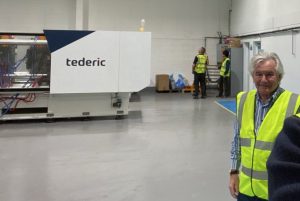Sony calls time on Liverpool studio

SONY is to close its games development studio in Liverpool following a review of the business.
Other parts of the business based in the city are unaffected by the decision.
The studio, which made Wipeout for the Vita handheld console, started out Psygnosis and was bought by Sony in 1993.
The corporation said it made the decision following a regular review designed to ensure, “the resources we have can create and produce high quality, innovative and commercially viable projects in an increasingly competitive market place.”
TheBusinessDesk.com understands the studio employs more than 50 staff, while a further 450 work in quality assurance, testing and external development – managing the development of games made externally but published by Sony.
Sony said it will try to relocate staff to other studios, but some redundancies “will be necessary”.
In a statement it said: “We have reviewed and assessed all current and planned projects for the short and medium term and have decided to make some changes to our European Studios.
“It has been decided that Liverpool Studio should be closed. Liverpool Studio has been an important part of SCE Worldwide Studios since the outset of PlayStation, and have contributed greatly to PlayStation over the years. Everyone connected with Liverpool Studio, past and present, can be very proud of their achievements.
“However, it was felt that by focusing our investment plans on other Studios that are currently working on exciting new projects, we would be in a stronger position to offer the best possible content for our consumers.
“Our Liverpool Facility will continue to operate, housing a number of other vital WWSE (Worldwide Studios Europe) and SCEE (Sony Corporate Entertainment Europe) departments. This should not take anything away from the great work WWS are doing and the incredible games and services that we have made, and continue to make.”
The move follows last year’s closure of Bizarre Creations in Liverpool by US group Activision. That led to a number of new start-ups such as Lucid .
Phil Gaskell, creative director at Liverpool games publisher Ripstone, said: “I would hope a number of small developers will spring up and they carry on making great games.”








